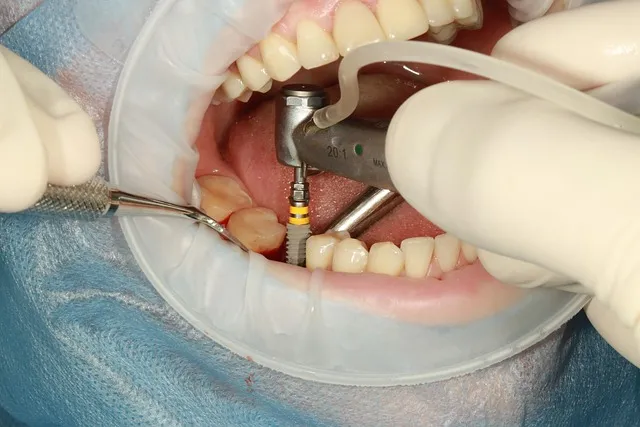Whether you've woken yourself up snoring, heard yourself on a sleep tracking app, or are really starting to annoy your partner, the good news is that snoring is a common problem that affects millions of adults around the world. And while snoring can sometimes be completely harmless, it can also have a more detrimental effect on your health than you may realize. Snoring can also be a common sign of more serious underlying health conditions such as sleep apnea, which is where your airway becomes blocked during the night. Thankfully, if you snore, there are several things you can do to stop it for good. Here are some common causes of snoring and what you can do about them.
1. Mouth Breathing
Breathing through your mouth during the night can leave your airways blocked and cause you to snore. It has also been linked to several health risks, including raised blood pressure and increased risk of serious problems like heart disease. Mouth breathing can also lead to you waking up in the morning with a seriously dry mouth and feeling very dehydrated, which is never a nice way to start your day. Anti-snoring strips are a great solution if this is your problem; they promote nose breathing and help prevent your mouth from falling open in your sleep.
2. Back Sleeping
If you sleep on your back, you may be at a higher risk of snoring compared to people who sleep on their side or front. This is because when you sleep on your back, your tongue can fall back in your mouth when it's relaxed, leaving your airway blocked and causing you to snore. The good news is that all you need is a few extra pillows to help rectify this problem. If you aren't comfortable sleeping in any other position, propping your head up so that it's raised above your body when you sleep can help. Or you can use pillows to position yourself on your side and train yourself to sleep that way.
3. Alcohol
Many of us think that having a couple of drinks will help us sleep better, but actually, being drunk can cause more sleep problems - including snoring. Alcohol is a very strong muscle relaxant, and it can cause the areas around your throat, airway, and tongue to relax even more when you are sleeping, which can result in more vibration when you sleep. Avoiding drinking before bed is the best way to prevent this.
4. Nose and Throat Conditions
There are certain nose and throat conditions that can also increase your risk of being a snorer. If you've tried snoring strips, sleeping on your side, and going to bed sober and still snore, it may be worth visiting your doctor to rule out any underlying health problems that could be the cause. Some common nasal and throat conditions that can lead to snoring include a deviated septum, enlarged tonsils, and nasal polyps. In addition, you're also more likely to snore if your airways are blocked due to having a cold or the flu. Also read: [highlight color="yellow"]Top 10 Lifestyle Changes to Stop Snoring[/highlight]
5. Medication
Certain medications that you might be taking for other health conditions can cause your muscles to relax even further, leading to snoring during your sleep. Most people who are taking regular medication can't just stop taking it so that they stop snoring. The best thing to do is speak to your doctor about your concerns and get their advice. You may find that anti-snoring remedies such as changing your sleep position, elevating your head at night, or using anti-snoring strips can help to mitigate the effects of the medication.
6. Sleep Apnea
Sleep apnea is a health condition that can be quite serious if left untreated. There are several different types of sleep apnea, but the most common is obstructive sleep apnea, which causes breathing to stop and start during sleep. This occurs due to your throat muscles intermittently relaxing, which blocks your airway in the night. Excessive snoring is usually one of the first signs of sleep apnea, but you may have often noticed that you wake up frequently due to shortness of breath, or your partner may have told you that they are worried because they've noticed you stop breathing in your sleep. Thankfully, there are treatments available for this condition, so the best thing to do is speak to your doctor who can help you find the most appropriate course of action for you. Surgery may be an option, or you can use devices like a CPAP to use positive pressure that keeps your airway open while you are sleeping. Snoring is a fairly common problem, but it can have a bigger impact on your health than you may realize. Thankfully, snoring is typically caused by issues that can be easily solved, allowing you and your partner to get a better night's sleep.

Reviewed by







